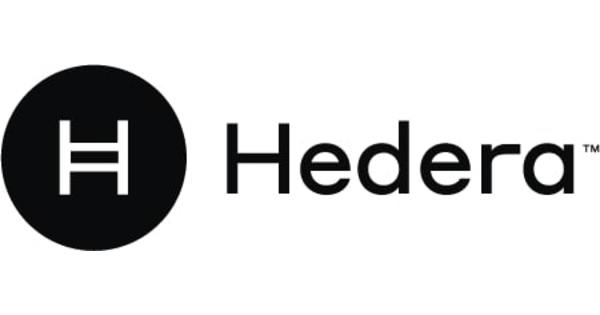HBAR Foundation, the development team behind the Hedera blockchain has partnered with Arkhia, an Infrastructure-as-a-Service (IaaS) provider, which will provide robust infrastructure solutions for applications building on Hedera. This partnership marks another milestone in HBAR’s mission to transform and scale the internet economy with a permissionless ecosystem where developers can create decentralized apps.
ARKHIA, a leading blockchain consulting, development, and integration firm joined Hedera as one of its premier partners. Arkhia’s global network of high-caliber engineers, data scientists, and domain experts will help build the next-generation decentralized ledger technology to power a new generation of Web 3.0 applications.
The partnership will enable Arkhia to offer clients new Hedera APIs and developer tools while building out its own suite of services powered by the Hedera network.
Blockchain and distributed-ledger technology (DLT) developers can take advantage of Arkhia’s Infrastructure-as-a-Service (IaaS) platform. With Arkhia, developers can develop on DLTs at scale, with modular services that are distributed across regions, clouds, and redundant infrastructure.
Arkhia is the first to offer access points to the Hedera network, enabling backend and client-side application developers to tap into the burgeoning Hedera ecosystem and enhance its growth.
Arkhia is designed for speed of deployment and development. In addition to using Google Kubernetes Engine (GKE), Arkhia is equipped to expand with Hedera’s growing services fabric, ensuring that applications running core business services have access to updates as soon as they become available on Hedera’s preview net, testnet, or mainnet using multi-region deployments. For these three Hedera networks, Arkhia will provide scaled endpoints.
Arkhia partners with Google Cloud
Taking advantage of Google Cloud’s high availability capabilities, code vaults, and built-in metrics capabilities, Arkhia will be able to provide the next-generation DLT features of Hedera. Through the use of Google Cloud services such as Apigee, Cloud Storage, and BigQuery, Arkhia’s service layer enables rapid sign-in, integrated, and secure authentication at the application level, as well as project-encapsulated metrics, allowing developers to have maximum information and control over their Hedera environment.
Hedera Governing Council is a diverse group of world-leading organizations responsible for governing the Hedera network, including Google Cloud. In addition to the Hedera Consensus Service ecosystem, Google Cloud is the preferred cloud provider for Hedera’s public testnets. Besides running a Hedera network node, Google Cloud makes the ledger data available for analytics along with other public DLT datasets.
As a member of the Hedera Governing Council, Arkhia can utilize Google’s own cloud bucket, which contains a copy of the DLT state, to access updates and transactions on the Hedera network. Moreover, Arkhia will use Google Cloud’s existing infrastructure, which already powers the Hedera Consensus Service ecosystem and Hedera’s public testnets, to provide quality checks to ensure accuracy. It will also house its own buckets of the Hedera state in Google Cloud. Arkhia will be able to ensure speed and consistency for Hedera developers as a result.
In order to empower developers to build resilient DLT applications, we look forward to providing Arkhia with secure and sustainable cloud infrastructure and data and analytics tools.
In addition to our existing relationship with Hedera Hashgraph, our collaboration with Arkhia will help strengthen the Hedera ecosystem by ensuring security and innovation.” – Carlos Arena, Director, Digital Assets, Google Cloud.
The Hedera network already offers enterprise-ready DLT services (tokens, files, consensus, smart contracts, and cryptocurrency) but Arkhia has been designed to be flexible, so any Hedera stack expansions, such as its JSON-RPC Smart Contract relays, will also expand Arkhia’s core capabilities.
Arkhia will become a premier IAAS provider for both enterprises and startups that want to build companies for the future of finance thanks to Google Cloud’s ongoing support of DLT technologies.
Our partnership with Google Cloud complements each other’s services perfectly, which is why we are thrilled to be their preferred partner. Arkhia’s enterprise-grade, world-class infrastructure is built on Google Cloud’s robust global network, and serves developers using the most sustainable decentralized network, Hedera Hashgraph.” – Ethan Lee, Head of Business at Arkhia.
ARKHIA – An overview
We provide enterprise-grade Infrastructure-as-a-Service (IaaS) for decentralized technologies through Arkhia. With our high-availability environments for Web3 applications, we empower organizations, teams, and individuals to build fast, modular, and scalable solutions.
The Arkhia API suite is built specifically for mission-critical applications that require ultra-reliable network uptime on multi-chain networks. Visit arkhia.io, subscribe to our newsletter or follow us on Twitter (@arkhia_io) and LinkedIn to find out more about how we provide enterprise-grade infrastructure.
Hedera: a brief introduction
Among the decentralized economy’s most widely used, sustainable, enterprise-grade public ledgers, Hedera is the most widely used one. An advisory council of leading organizations governs the platform, including Avery Dennison, Boeing, Chainlink Labs, DBS Bank, Dentons, Deutsche Telekom, DLA Piper, EDF (Electricité de France), EFTPOS, FIS (WorldPay), Google, IBM, the Indian Institute of Technology (IIT), LG Electronics, Magalu, Nomura Holdings, ServiceNow, Shinhan Bank, Standard Bank Group, Swirlds, Tata Communications, Ubisoft, University College London (UCL), Wipro, and Zain Group.
Visit www.hedera.com for more information, or follow them on Twitter at @hedera, Telegram at t.me/hederahashgraph, or Discord at www.hedera.com/discord. Visit hedera.com/papers to download the Hedera whitepaper.
Via this site

